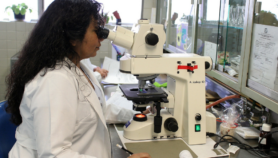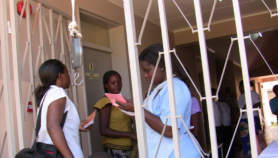By: Tamar Kahn
Send to a friend
The details you provide on this page will not be used to send unsolicited email, and will not be sold to a 3rd party. See privacy policy.
 |
Southern Africa is just one of two land masses, with Australia, that will be in the path of totality during the solar eclipse, and the small town of Musina in northern Limpopo will be one of the prime sites from which to witness the phenomenon on the morning of 4 December.
‘Eclipse experts’ are in hot demand, as organised tours seek out guides to explain the science of the eclipse. Some of the more expensive tours to Musina include nightly scientific lectures, and promise that scientific experts will provide live commentary during the eclipse.
Official expectations of the economic benefits that the visitors will bring to the region are running high. The Municipal Manager of Musina, Abram Luruli, is organising a six-day “eclipse and tourism” festival for the small border town, including events ranging from music festivals to a mock-up of a traditional Venda village selling arts and crafts.
“We are assuming 60,000 people over a six-day period starting on 29 November,” he says. The municipality has set aside R3.2 million (US$328,000) for the event and expects to make a profit of R200,000 (US$20,500), primarily from ticket sales to festival events and from renting accommodation to the eclipse tourists.
But not everyone is as upbeat as Luruli. Andrew MacKenzie, manager of the Eclipse Line information service, says the event has been poorly marketed by South African tourism officials, who focused all their energy on the World Summit on Sustainable Development and on the upcoming Cricket World Cup. He says the Musina municipality has worked itself up into an unrealistic frenzy, and that it is setting itself up for a financial disappointment.
“Science on Safari” tour operator Tim Rundle has had previous eclipse tourism experience, having taken tourists to observe the solar eclipse in Zambia. He shares MacKenzie’s caution, saying that his operation has been disappointed with the demand from foreigners, and has been forced to reorient marketing efforts late in the day towards the local market.
Officials and tour operators alike are emphasising the spin-offs for the local community. It’s unclear how much revenue will flow into the pockets of Limpopo’s residents. But as it is a province with high unemployment, where breadwinners typically support large extended families, even a few days of moderate economic activity will be welcome.
© SciDev.Net 2002
Tamar Kahn is the Science Correspondent for Business Day
Photo credit: NASA













